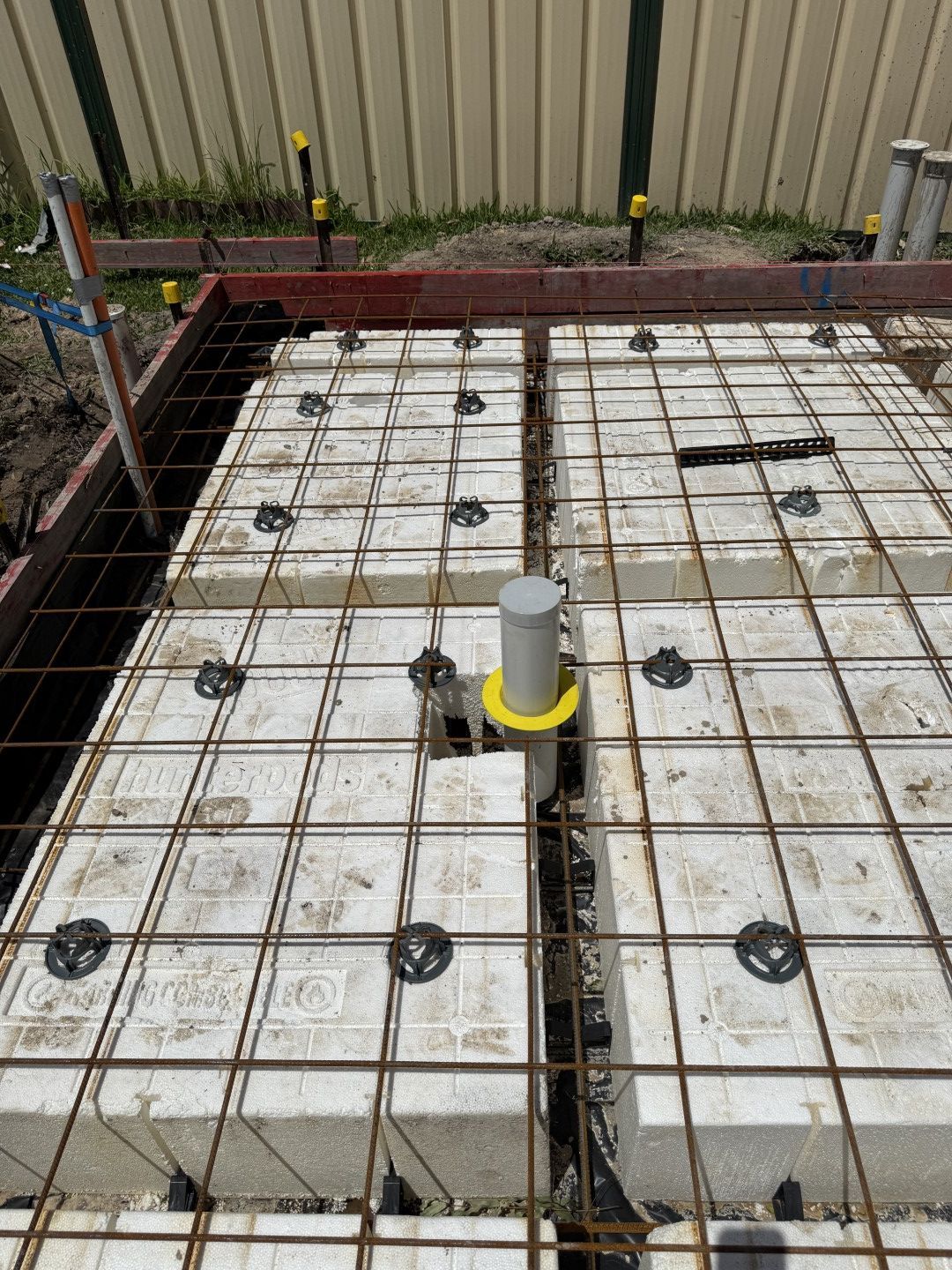How to Start Building Construction – A Step-by-Step Guide to Building a House in Phases
Embarking on building construction is an exciting journey, especially if you’re keen on building a house in phases. Whether you’re planning to construct a house in Australia or simply want to understand the construction process Australia style, this guide offers a comprehensive, step by step home building walkthrough. From initial land acquisition to the final handover, we’ll explain the stages of home construction and provide insights into house building construction that every aspiring homeowner or builder should know. In this guide, we cover the steps to building a home, explain each phase in detail, and highlight key considerations in the process of building a house.
Understanding the Building Construction Process
Before you begin, it is essential to grasp what building construction involves. At its core, building construction is the process of creating a structure from the ground up, and it typically follows a series of stages of building construction. These stages ensure that the project is managed effectively, from the planning stage right through to the final touches. In Australia, the home construction process is well-regulated, and understanding house construction phases such as building a house in stages can help you organise your project and budget accurately. This guide is designed to answer the question, how to start building construction with a clear outline of each phase.
Step 1 – Pre Construction Phase: Laying the Foundation for Success
The preconstruction phase is arguably the most critical part of step by step home building. This is where your dream of building a house in Australia begins. Here, you need to plan meticulously and address several essential elements:
Land Acquisition and Site Selection
Before how build house can commence, you must secure the right piece of land. Evaluate potential sites based on location, zoning regulations, and environmental factors. In Australia, the construction process Australia mandates that you consider local council regulations and any environmental assessments required. A well-chosen site sets the stage for a smooth house in the construction process.
Planning and Design
Once you have your land, the next steps to make a house involve hiring an architect or builder to create your blueprints. This stage focuses on the phases of building a house, ensuring that the design meets your needs while complying with local building codes. Whether you’re building a house in stages or aiming for a bespoke design, careful planning can prevent costly mistakes later on.
Budget Estimation and Cost Planning
Budgeting is a vital part of step by step home building. It involves estimating the overall costs, including materials, labour, and contingencies. In this phase, understanding the steps of construction of buildings allows you to allocate funds appropriately. It is recommended to set aside a contingency budget of around 10-20% of your total project cost to cover any unforeseen expenses.
Legal Approvals and Permits
Obtaining the necessary permits and approvals is an integral part of the construction process in Australia. This includes securing council approvals, environmental permits, and meeting all local building codes. Being proactive in this area ensures that your house building construction project avoids legal pitfalls and delays.
Scheduling and Hiring Contractors
Creating a realistic construction timeline is essential. This step covers the stages of home construction where you decide on hiring the right contractors and subcontractors. Organising your project schedule will help you manage building a house in phases effectively, ensuring that every stage transitions smoothly into the next.
Step 2 – The Building Construction Phase: Bringing Your Vision to Life
The building construction phase is where the plans become reality. This is the heart of the home construction process, where each step by step home building activity is carried out with precision. The construction phases of a house include several critical sub-stages:
Site Preparation and Foundation Work
This initial construction stage involves clearing the site, excavating, and preparing the ground for the foundation. A strong foundation is essential for any house in construction and is one of the first steps to building a home. Proper site preparation reduces future risks and ensures that the process of building a house is set on a stable base.
Structural Construction Stages
Foundation Laying
Laying the foundation is a critical part of building a house in stages. Whether you’re opting for a slab, crawl space, or basement foundation, each type has its specific benefits and cost implications. This stage involves pouring concrete and ensuring that the structure is level and secure.
Framing and Structural Work
Following the foundation, the framing of the building begins. This is one of the main construction phases of a house where the skeleton of the structure is erected. Framing includes installing walls, beams, and columns, and is pivotal in determining the overall shape of your new home.
Masonry and Brickwork
For many, the next steps to make a house involve masonry work. Laying bricks or blocks adds both strength and character to the building. This phase is critical in house building construction and often requires skilled labour to achieve the desired finish.
Roofing Installation
Installing the roof is another essential stage in the stages of building construction. A quality roof not only provides shelter but also enhances the overall aesthetic of your building. Materials used here can range from metal to tiles, each with its own durability and cost factors
.
Plumbing and Electrical Installations
At this point, the focus shifts to the critical internal systems. The process of building a house includes laying down plumbing, electrical wiring, and ensuring that these systems comply with safety standards. This stage is vital for ensuring that your building functions well and meets modern living standards.
Exterior and Interior Finishing
As the structure begins to take shape, attention turns to both exterior and interior finishing. This involves installing windows, doors, cladding, and other exterior elements. Interior work includes drywall installation, flooring, painting, and fixture fittings. These details are the final steps of construction of a building that transforms a basic structure into a home.
A Table of Construction Phases and Estimated Durations
| Construction Phase | Key Activities | Estimated Duration |
|---|---|---|
| Site Preparation & Foundation | Land clearing, excavation, foundation pouring | 1-2 months |
| Framing & Structural Work | Erecting walls, beams, columns | 2-3 months |
| Masonry & Roofing | Brickwork, roofing installation | 1-2 months |
| Plumbing & Electrical | Wiring, pipe laying, system testing | 1-2 months |
| Interior & Exterior Finishing | Drywall, painting, flooring, cladding installation | 2-3 months |
This table provides a clear overview of the stages of home construction and illustrates the time commitment required at each phase of building a house in Australia.
Step 3 – Post-Construction and Final Inspections: The Final Leg of the Construction Process
Once the main construction work is completed, the project enters the post-construction phase. This stage is crucial for ensuring that every element of the home construction process meets quality and safety standards.
Quality Inspection and Safety Checks
Before finalising the project, thorough inspections are carried out to confirm that all work has been completed to a high standard. This includes structural integrity tests, electrical safety checks, and plumbing inspections. The steps to building a home must be verified to ensure that your house in construction is safe and ready for occupation.
Practical Completion and Final Walkthrough
A practical completion stage, often known as a final walkthrough, allows you to inspect the property in detail. This is the moment when you check for any defects or areas that need correction. It is a crucial step in the phases of building a house, ensuring that the final product meets your expectations and the standards set out at the beginning of the project.
Handover and Occupancy Certificate
The final part of the construction process in Australia involves the handover of the building to the owner. Once all inspections are passed and necessary documentation is completed, an occupancy certificate is issued, allowing you to move in. This marks the end of the steps to building a home and the beginning of enjoying your new property.
Additional Considerations for Efficient Building Construction
Beyond the core construction phases, there are additional factors that can influence the overall success of your project. Embracing building a house in phases can help manage the workload and budget more effectively, especially if you plan to expand or renovate in the future.
Sustainable and Eco-Friendly Practices
Modern house building construction increasingly focuses on sustainability. Using energy-efficient materials and incorporating smart home technologies are key aspects of the steps to make a house that not only save money in the long term but also reduce environmental impact.
Cost-Saving Strategies
There are several ways to reduce costs without compromising quality. Consider using prefabricated materials or modular construction techniques, which are becoming more popular in Australia. These methods streamline the process of building a house and can significantly cut down on time and expenses.
Overcoming Common Construction Challenges
Every construction project faces challenges, whether they are delays due to weather, labour shortages, or unexpected issues with site conditions. Having a flexible plan and a contingency budget is essential for successfully navigating these obstacles during the steps of building.
Final Thoughts on the Home Construction Process
Understanding the stages of home construction and the steps to building a home is crucial for anyone looking to embark on a construction project. From the initial pre construction planning to the final handover, every phase plays a vital role in ensuring that your house in construction meets your expectations. Whether you are building a house in phases or opting for a more traditional approach, the construction process Australia style involves careful planning, expert execution, and a commitment to quality. By following this comprehensive guide on how to start building construction, you can confidently navigate the stages of building construction and achieve a successful, durable home.
At the end of the day, whether you are asking how to build a house or looking for step by step home building advice, remember that careful planning and engaging experienced professionals is the key to success. With the right strategy and understanding of the home construction process, you’ll be well on your way to turning your dream into reality.
Happy building, and may your journey in building construction be smooth, efficient, and ultimately rewarding!









